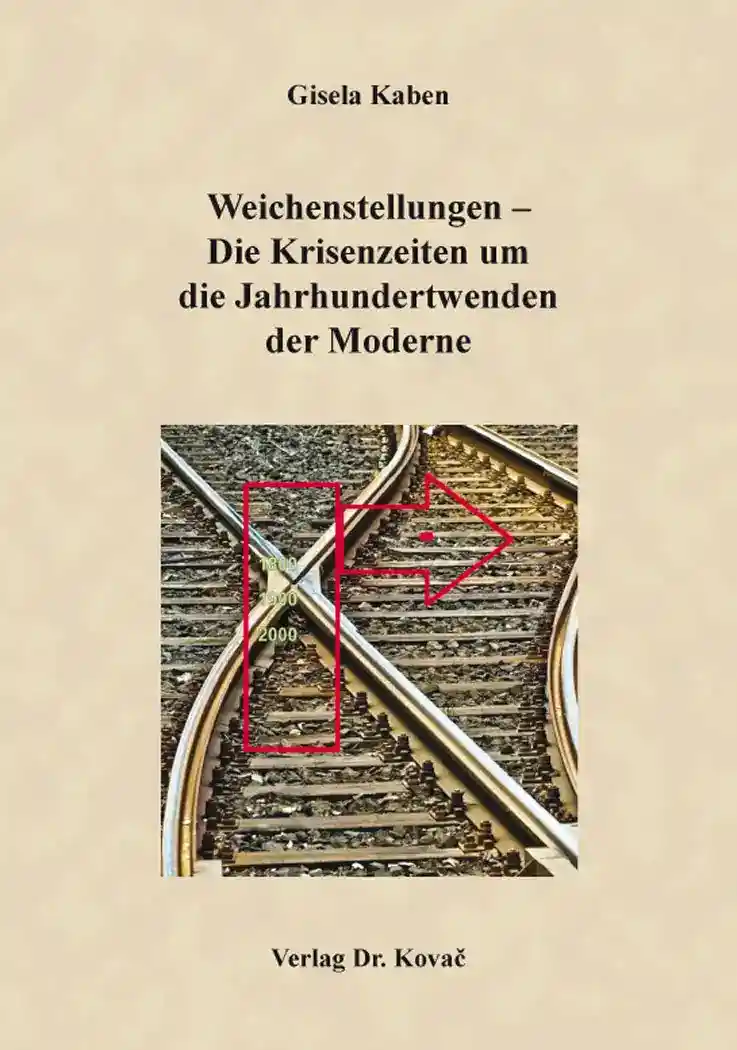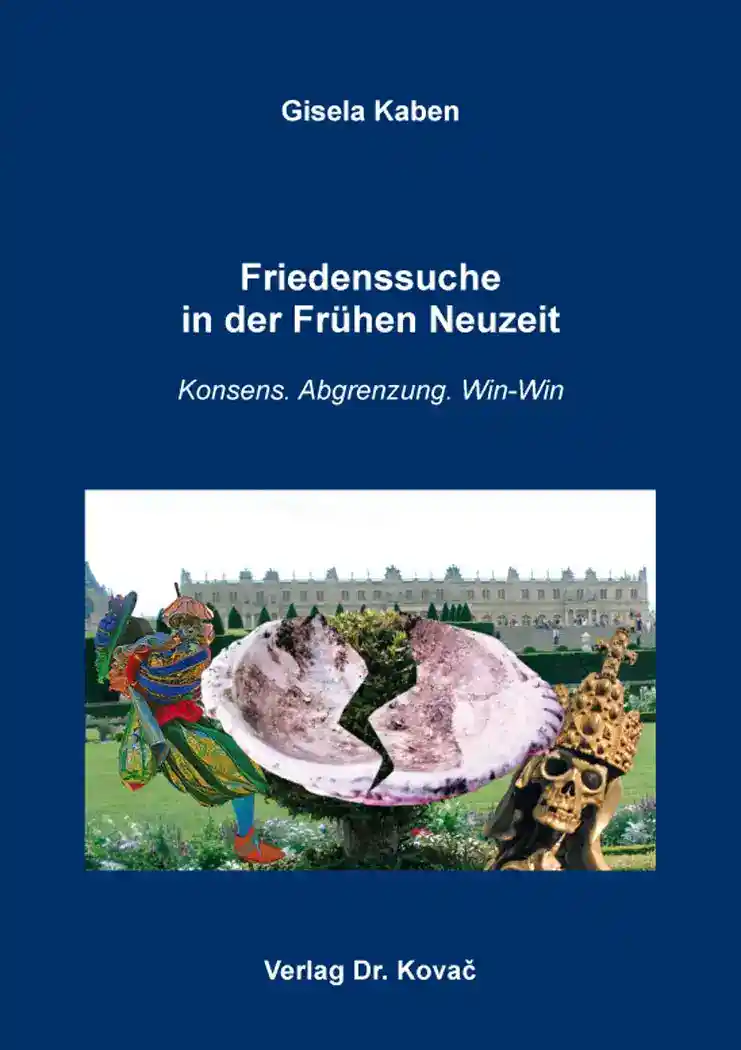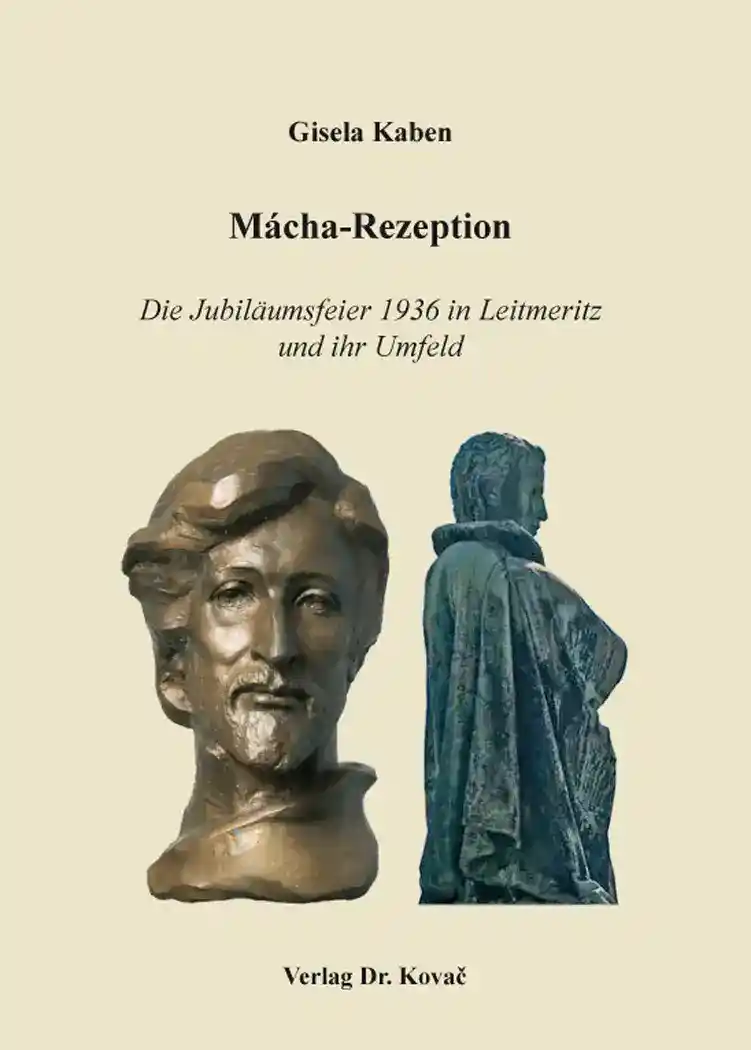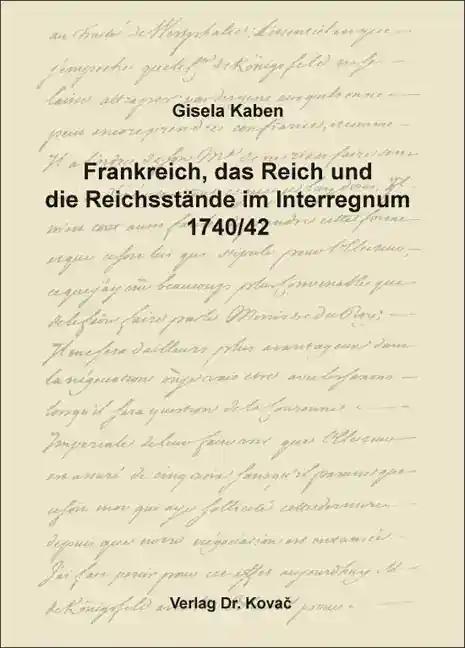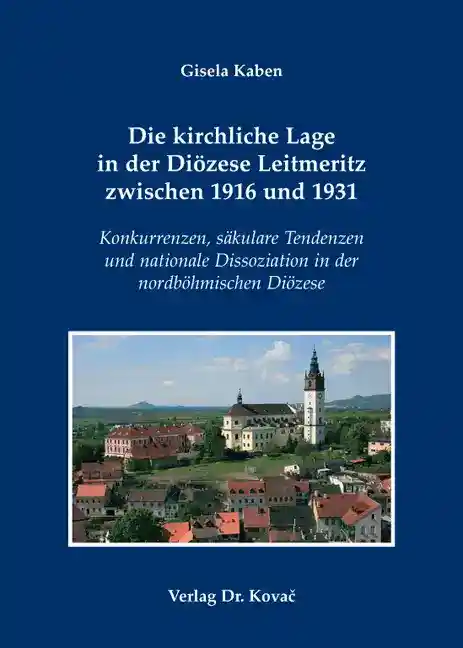Gisela KabenWeichenstellungen – Die Krisenzeiten um die Jahrhundertwenden der Moderne
Studien zur Geschichtsforschung der Neuzeit, volume 102
Hamburg 2020, 546 pages
ISBN 978-3-339-10904-0 (print) |ISBN 978-3-339-10905-7 (eBook)
About this book deutschenglish
Crises determine world affairs; at least would one come to think this way, looking at communication media or listening to the public. Facing the big mankind’s crises, one could ask, what sort of crisis this little, elderly continent should (or shall) be able to yield. But concerning the last two hundred years were European crises considered as important enough, to remain within the world’s focus. Just at the turns of centuries, hence the years 1800, 1900, 2000 and their neighbouring periods, people were living in a permanent beat of crisis. If not wars, then revolutions or either both together, were overturning all, what just could have been regarded as guaranteed future. And still the most peaceful upheavals should not always remain that peaceful, as it the beginning had promised. Even lacking violence, some individual life-plannings were destroyed, touching self-confidence and self-awareness as well. This was not inevitable. Crises can contain creative potential, including opportunities of reorientation. Crises always are presumed for something new, while the old could no longer be saved. Crises stimulate in man the good as well as the evil.
In this book will all these aspects be treated, not like a chronological list, but connections and repercussions will be analysed. Settings of course shall be examined. Just because Europe is not a big continent, diverse developments could always occur in a very small place, or people simply were following their neighbours. Frontiers could turn out to be strong demarcation lines or bridges between neighbouring regions as well. Europe, its countries and peoples have indeed committed mistakes time and again, but occasionally they learned from their mistakes. But they are able to forget their learned patterns. In the meantime peoples were developing. About the year 1800 they just began to feel no more like passive subjects towards the authorities. They learned autonomy, they started organizing and tried out new forms of living. Not all they did really improved mankind, they also could enter fatal paths, which then set the basis for new crises, including new dangers but also a bet for future. This will be observed after November 2019, too; the book ends at this point.
Link der Autorin
Kontaktmöglichkeit
Keywords
EuropaGeschichtsforschungIdentitätJahrhundertwendenKriegeKrisenKrisenzeitenLangzeitwirkungenMigrationModerneNationenRegionenStaatsgründungenVielvölkerreicheIhr Werk im Verlag Dr. Kovač

Möchten Sie Ihre wissenschaftliche Arbeit publizieren? Erfahren Sie mehr über unsere günstigen Konditionen und unseren Service für Autorinnen und Autoren.
Weitere Bücher der Autorin
Friedenssuche in der Frühen Neuzeit
Konsens. Abgrenzung. Win-Win
Hamburg 2018, ISBN 978-3-8300-9498-2 (Print) |ISBN 978-3-339-09498-8 (eBook)
Die Jubiläumsfeier 1936 in Leitmeritz und ihr Umfeld
Hamburg 2016, ISBN 978-3-8300-8429-7 (Print) |ISBN 978-3-339-08429-3 (eBook)
Frankreich, das Reich und die Reichsstände im Interregnum 1740/42
Hamburg 2013, ISBN 978-3-8300-6370-4 (Print) |ISBN 978-3-339-06370-0 (eBook)
Die kirchliche Lage in der Diözese Leitmeritz zwischen 1916 und 1931
Konkurrenzen, säkulare Tendenzen und nationale Dissoziation in der nordböhmischen Diözese
Hamburg 2009, ISBN 978-3-8300-4111-5 (Print) |ISBN 978-3-339-04111-1 (eBook)
